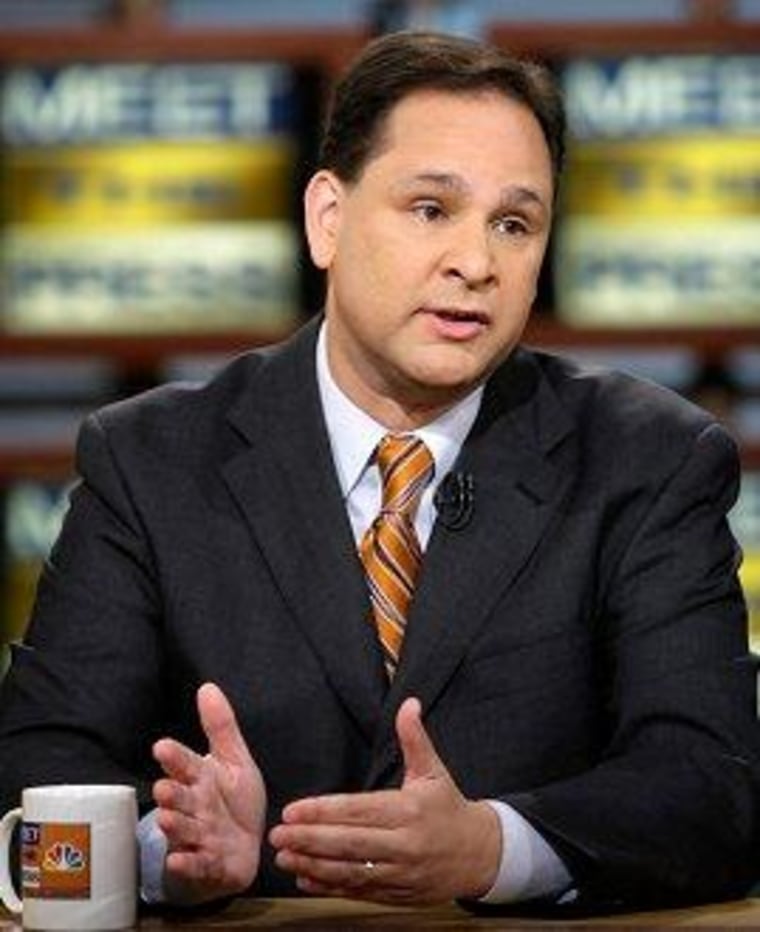For the social conservatives and the religious right movement, a sense of victimization and a profound persecution complex aren't just hallmarks of their ideology, it's been elevated to a near art form. Nobody -- nobody -- feels sorry for themselves as dramatically and effectively as far-right evangelical activists.
And with the culture-war winds blowing even stronger in a progressive direction of late, the urge among social conservatives to feel sorry for themselves is apparently uncontrollable. David Brody of radical TV preacher Pat Robertson's Christian Broadcasting Network offered this self-pitying gem yesterday (via Ed Kilgore):
In the media's narrative, you would think that homosexuals are the poor souls who have been banished by society like ugly stepchildren and are now rising to overcome incredible odds.But what about today? Let's be honest: If you are a conservative evangelical who believes in the biblical definition of traditional marriage then guess what? You are one of the following: An outcast, a bigot, narrow-minded, a "hater" or all of the above. It's a different type of ridicule but it's still ridicule.
Erik Erikson embraced a similar sentiment, and added a healthy dash of paranoia: "Within a year or two we will see Christian schools attacked for refusing to admit students whose parents are gay. We will see churches suffer the loss of their tax exempt status for refusing to hold gay weddings. We will see private businesses shut down because they refuse to treat as legitimate that which perverts God's own established plan."
Erikson is basing these wild-eyed predictions on nothing in particular, but he's nevertheless certain that he and his brethren are the victims of a libertine monster intent on punishing the righteous.
If only liberals could find it in their hearts to be more tolerant of intolerance, the poor social conservatives wouldn't feel so put upon.
Please.
As much as I hate to break up a good pity party, it's worth noting that conservative evangelicals are not actually oppressed, at least not in this country. They're losing public debates -- failing to persuade the American mainstream is not the same thing as persecution -- but no one has proposed stopping social conservatives from getting married, or adopting, or serving in the military. When conservative evangelicals get elected to Congress, it's not a historic breakthrough. When social conservatives look for equality, they don't wait patiently for a Supreme Court ruling to decide whether they'll get it.
They're eager to make others second-class citizens, but as these efforts stumble, conservative evangelicals have convinced themselves that they're the real second-class citizens.
Paul Waldman had a good take on this.
The impulse to jam that crown of thorns down on your head is a powerful one in politics. It means you've achieved the moral superiority of the victim, and the other side must be the victimizer. The problem is that these folks don't seem to have much of a grasp on what second-class citizenship actually looks like. Last time I checked, nobody was forbidden to vote because they're a Christian, or not allowed to eat in their choice of restaurants, or forced to use separate water fountains, or even be forbidden by the state to marry the person of their choice. That's what second-class citizenship is. Having somebody on television call your views retrograde may not be fun, but it doesn't make you a second-class citizen.Of course, they say, "Just you wait." But these fantasies of oppression are just that, fantasies.
Quite right. It appears social conservatives just don't take criticism well. I'll gladly concede that a growing number of Americans find the religious right's views offensive and narrow-minded, and, conservative evangelicals occasionally find themselves the subject of criticism.
But that's not oppression or discrimination; it's the result of a spirited public discourse. These conservatives have presented their vision to the public, and increasingly, the public is responding with disapproval.
If these folks aren't satisfied, they can either try new ideas or new sales pitches, but the sooner they stop thinking of themselves as victims, the better.
